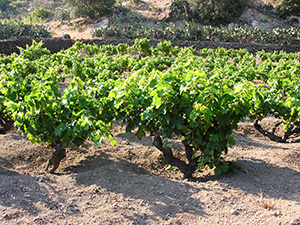An EU-funded project designed to achieve economic diversification and protect the natural beauty of rural Malta and Sicily, has enabled a nascent wine industry to blossom.
- 29 January 2016
The PROMED project has shown that innovative products and processes can increase the profitability of growing systems while safeguarding the ecosystem and final product. All activities in Malta and Sicily involved local producers. Wines have since been presented at numerous international events, including the 2012 and 2013 editions of the international wine and spirits exhibition Vinitaly.
Identified as an eco-friendly alternative to seaside tourism, viticulture has given local communities a viable economic outlet and helped to protect the region against soil erosion. Some 14 jobs were created during the implementation of the PROMED project.
Profitable conservation
PROMED began by studying some 60 000 square metres of Sicilian and Maltese terrain, identifying areas where winemaking might be most viable and which grape varieties might work best. Best practices to ensure operational efficiencies were established along the way.
The project wanted to evaluate whether vine cultivation could be a profitable means of safeguarding smaller Sicilian islands and Malta from soil erosion. Therefore, this research was put into practice in vineyards across the islands of Malta, Pantelleria and Linosa. Wine-making trials were also carried out at the Dalmasso winery at Marsala, Sicily.
An experimental winery was set up at Buskett, Malta, following the example of the Dalmasso winery at Marsala, which facilitated knowledge transfer on sustainable vineyard management.
A viable local industry
During the project, a total of 9 different grape varieties were analysed, while a total of 42 experimental wines were produced. Analyses and technical wine tastings were carried out 610 times. The transfer of knowledge has helped changed the way in which traditional Maltese vineyards are managed, both in terms of operational rationalisation and through the adoption of new practices such as temporary and artificial cover cropping. In Linosa, the project has helped to improve the quality of grapes through the protection of vines against arid conditions and wind.
The project has also boosted local wine production by establishing wine-producing protocols, one of which – PROMED’s Pantelleria protocol – has already been recognised by MIPAAF, the Italian Ministry for Agricultural, Food, and Forestry Policy. New wine-focused tourist routes are now being promoted.
Total investment and EU funding
Total investment for the project “PROMED” is EUR 1 455 535 with the EU’s European Regional Development Fund contributing EUR 1 152 205 through the “Italy-Malta” Operational Programme for the 2007- 2013 programming period.

